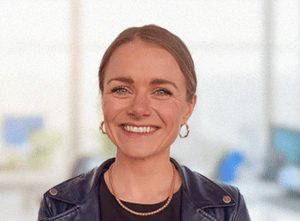North Highland provided strategy and change support to a London-based food redistribution charity. As our final formal engagement at the end of a two-year partnership, we helped the client design and test a corporate partnership model that enables it to scale its volunteering operations and opportunities across London with relative ease. We also designed and delivered a training series to upskill the charity’s managers and leaders in leading through change, communicating strategically, and supporting career development through effective feedback.
Client Situation
A relatively young charity, The Felix Project experienced a meteoric rise in demand for its services during the COVID-19 pandemic, when many communities experienced a food poverty crisis. With that rapid growth came some negative consequences, however, including employee burnout and attrition, a lack of investment (both time and financial) in people development, and corporate partnerships that were reactive, inconsistent, and time-intensive. The Felix Project engaged North Highland to achieve two of its priorities:
- Gaining a detailed understanding of the end-to-end process and activities involved with corporate partnerships to enable the design, pilot, and launch of a new corporate partnership model to increase effectiveness and scalability.
- Designing and delivering a series of “train-the-trainer”-style sessions to upskill leaders in key management competencies and increase employee engagement through a renewed focus on people development.
Our Approach
To design and launch a new corporate partnership model, we mapped out the current state by taking a people-centric, collaborative approach to unpacking and addressing the challenges and pain points The Felix Project faced in its corporate partnerships. We then conducted a design-thinking-style ideation session, articulating our problem statement and exploring a wide range of potential partnership model designs, before working with the client to refine and prioritize those ideas and collaboratively design a proposed solution we named “The Corporate Green Scheme.”
We wanted to test variables and ensure that the solution would deliver the desired results for The Felix Project, so we conducted a Corporate Green Scheme Pilot internally at North Highland. This enabled us to efficiently gather first-hand feedback and refine our approach.
We then developed an interactive and engaging corporate volunteering toolkit, leveraging insights from the charity’s team and our North Highland pilot participants to ensure ease of implementation, scalability, and repeatability for The Felix Project.
To design and deliver the leadership training series, we conducted discovery sessions to understand the key knowledge gaps within the leadership team and gain a clear understanding of the competencies we needed to target through training. We then worked collaboratively with the client to iteratively design the training materials, incorporating best practices and industry insights while using practical scenarios for role-play activities.
Because we knew the charity’s employees faced capacity challenges, we delivered the training across a series of bite-sized learning sessions, culminating in an in-person session that gave managers and leaders an additional opportunity for learning consolidation, practical implementation, and team building.
Value Delivered
Our focus for this final engagement with The Felix Project was on ensuring we made a tangible, positive impact on the organization by producing practical deliverables that could easily be leveraged by its employees.
Our approach to the new corporate partnership model was designed with a focus on scaling the Green Scheme. We weaved behavioral science through our process redesign to help increase accountability to complete volunteer shifts and therefore volunteer uptake within those organizations. By clearly outlining process, expectations, and roles and responsibilities, we brought the clarity and consistency needed to make the new partnership approach highly repeatable. This has led to increased reliability and scalability while reducing the high administrative and operational burden previously associated with coordinating corporate partnerships.
“I have done a lot of training of this sort across my years as a CEO, and I can honestly say this was the best I have ever experienced. The work we do at The Felix Project can feel relentless at times, and especially during the pandemic and the cost-of-living crisis when the demand for our food is sadly so great. What you have given us—both yesterday and across the many months we have worked together—is investment into the people without whom we simply wouldn’t do what we do. Your impact will be felt for many years and months to come, for us each individually and for the organization. Thank you so much.” - Charlotte Hill, CEO, The Felix Project
Through engaging, interactive, and targeted training sessions, we also upskilled more than 30 leaders in critical leadership skills, including leading through change, communicating with confidence, delivering effective feedback, and understanding team dynamics. In line with our commitment to building lasting capability, our “train the trainer” approach enables The Felix Project to continue developing its people without relying on consultants. The training we developed is now regularly referenced internally and has had a material and lasting impact, helping strengthen team culture, renew the organization’s focus on people development, and increase employee engagement.








